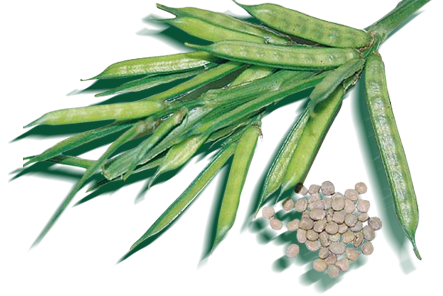Importance of Hydrocolloids as Thickening Additives in Food Industry
Importance of Hydrocolloids as Thickening Additives in Food IndustryColloid is a substance that allows microscopically dispersed insoluble particles of one substance to be suspended in another substance. This can be solid, liquid or bubbles of gas. A hydrocolloid is a substance that has colloid particles within a water base.
There are several examples of hydrocolloids; some of them are derived from natural polysaccharide sources others like agar-agar and carrageenan which are extracted from seaweed; others are cellulose derivatives as carboxymethyl cellulose, alginate and starch. Some of the other popular hydrocolloids include xanthan gum, gum arabic, guar gum,cassia gum, Gelatin desserts from gelatin powder, etc

What is Hydrocolloid?
This is a heterogeneous group of long chain polymers. It has an ability to form viscous dispersion and gels when dispersed in water and also modify rheology of the food system. It can affect viscosity of food products as well as texture. It has become one of the most popular additives in several food products throughout the world with help of extensive research work carried out. Many countries have listed it as a permitted food additive.
Application of hydrocolloids as thickening additives
A thickening agent has an ability to increase the viscosity of a liquid. The special property of a thickener is that it does not affect the liquid in any other way. Edible thickeners are often useful as an additive in liquid base food products like sauces, soups, etc. The purpose as already mentioned is to increase flow property without affecting the taste.
Hydrocolloids are classified as a gelling agent and a thickener. It is useful as a gelling agent in food products like juice, milk, soda, coffee, juice, etc. It is also useful as a thickener in food products like gravy, pies, soups, etc.
Guar Gum is a good example of a Hydrocolloid which is a white color powder processed from the seeds of a plant guar. It has several good properties like its excellent solubility in water at any temperature, excellent viscosity, good stabilizer, gelling agent and emulsifier. However, one most important property is being used as a thickening agent to improve the viscosity and texture of a food disk (by absorbing water content).Importance of hydrocolloids as thickening additive
There are several reasons why Hydrocolloid like Guar Gum and Cassia Gum are important as thickener food additives in the food industry:
- They are good thickening agent since with solubility traits that withstand different temperature levels.
- It is a very good stabilizer (besides having good viscosity).
- Hydrocolloids like these are very stable in solutions with a pH in the range of 5 to 7. They also have reduced aqueous solubility at pH levels below 4.5.
- It is also useful as a stabilizing agent in meat and cheese.
- One of other important property is its gelling ability.
- They are easily affordable and cost effective.
- Have good chemical and physical structures.
- Helps with digestion and thus can replace flour in baked food.
- It is a good thickening agent in frozen foods and desserts since it prevents melting and makes food soft.
- Increases shelf life of products by acting as a preservative as well.
- Good for obese people trying to reduce weight since it helps produce low calorie food. Added advantage being it is useful in replacing taste of oil.
Thus, hydrocolloids like Guar gum are important for applications in food industry and are comparatively economical. Its water thickening capacity of is 8 times that of several other options like cornstarch, etc. Guar Gum Derivatives and Cassia Gum Derivatives have a great number of applications for baking in the food industry. Guar Gum is a very effective in providing stability and produce good quality food products.





